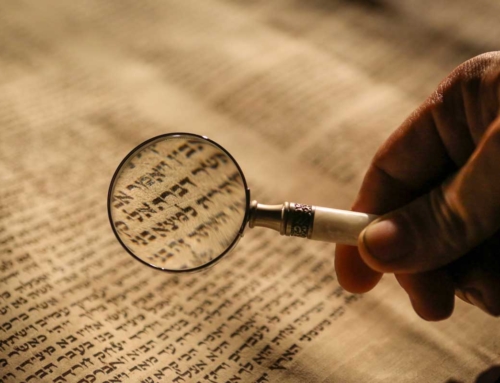Followers of Christ are supposed to be holy people. And in one sense, we already are. Christ has become for us, “wisdom from God, righteousness and sanctification and redemption…” (1 Corinthians 1:30). In other words, we don’t have to achieve righteousness or holiness in order to be acceptable in God’s sight. Jesus has taken our place not only by bearing the penalty for our sin (Galatians 3:13) but also by fulfilling the requirements of God’s law for us, providing us with a substitute righteousness (2 Corinthians 5:21).
And yet, we are still called to live holy lives. God expects his people to produce fruit (John 15:8; 16), to do good works (Ephesians 2:10), and to glorify him in all that we do (1 Corinthians 10:31). Now, if you’re anything like me, you can use all the help that you can get in this pursuit of practical holiness. Recently, I read a book that has proven helpful to me and that I think will help many God’s people in this pursuit. The Hole in Our Holiness is written by Kevin DeYoung. The book’s subtitle gives a good preview of what DeYoung aims to do in it: Filling the Gap between Gospel Passion and the Pursuit of Obedience. With that in mind, I thought I’d provide you with a few of my favorite quotes from this (relatively) short book in an effort to encourage you to give it a read.
I see a growing number of Christians today eager to think about creative ways to engage the culture. It’s not hard to find Christians fired up about planting churches and kingdom work. You can even find lots of believers passionate about precise theology. Yes and Amen to all of that. Seriously. There’s no need to tear down what is good and true just because something else good and true may be mentioned… All I’m saying is that, according to the Bible, holiness, for every single Christian, should be right at the top of that list. We need more Christians on our campuses, in our cities, in our churches, and in our seminaries who will say with Paul, “Look carefully then how you walk” (Eph. 5:15). (p. 20)
We’ve learned from countless television shows that the highest calling is to believe in yourself. The world most definitely insists on holiness. Don’t let anyone tell you it doesn’t. But the world’s holiness is not found in being true to God; it’s found in being true to yourself. And being true to yourself invariably means being true to someone else’s definition of tolerance and diversity. (p. 37)
Jesus is the Great Physician, and like any good doctor he writes different prescriptions for different illnesses. The gospel is always the remedy for the guilt of sin, but when it comes to overcoming the presence of sin, Jesus has many doses at his disposal. (p. 56)
Through faith we are joined to Christ and have union with him. That bond is unbreakable. Our union with Christ is an established fact, guaranteed for all eternity by the indwelling Spirit. When we sin, our union with Christ is not in jeopardy. But our communion is. (pp. 73-4)
You are allowed (and expected) to be obedient. You will never be perfect in this life. You cannot to anything to earn God’s love. But as a redeemed, regenerate child of God you don’t have to be a spiritual failure. By the mercies of God you can “present your bodies as a living sacrifice, holy and acceptable to God, which is your spiritual worship” (Rom. 12:1). (p. 77)
God does want you to be the real you. He does want you to be true to yourself. But the “you” he’s talking about is the “you” that you are by grace, not by nature. (p. 100)
Union with Christ fundamentally and irrevocably changes our relationship to sin. (p. 104)
Paul is not using union with Christ to play Jedi mind tricks on the church in Rome (“these are not the sins you’ve been looking for”). Rather, he wants them to know and consider all that is true of them in Christ (Rom. 6:9, 11). (p. 105)
The world is no friend to us in our fight for sexual purity. (p. 121)
Worldly grief is an expression of regret over opportunities lost, painful present circumstances, and personal embarrassment…. Godly grief recognizes the utter sinfulness of sin and hates it more and more. (pp. 142, 143)
There’s an eternal difference between regret and repentance. Regret feels bad about past sins. Repentance turns away from past sins. Regret looks to our own circumstances. Repentance looks to God. (p. 143)
Holiness is the sum of a million little things – the avoidance of little evils and little foibles, the setting aside of little bits of worldliness and little acts of compromise, the putting to death of little inconsistencies and little indiscretions, the attention to little duties and little dealings, the hard work of little self-denials and little self-restraints, the cultivation of little benevolences and little forbearances. (p. 145)
God is in the beautification business, washing away spots and smoothing out wrinkles. He will have a blameless bride. (p. 146).
That’s a lot of quotes for a short book, but I could have chosen many more great sentences and paragraphs. If you care about holiness (and all believers do) then this book can be of great benefit to you.




